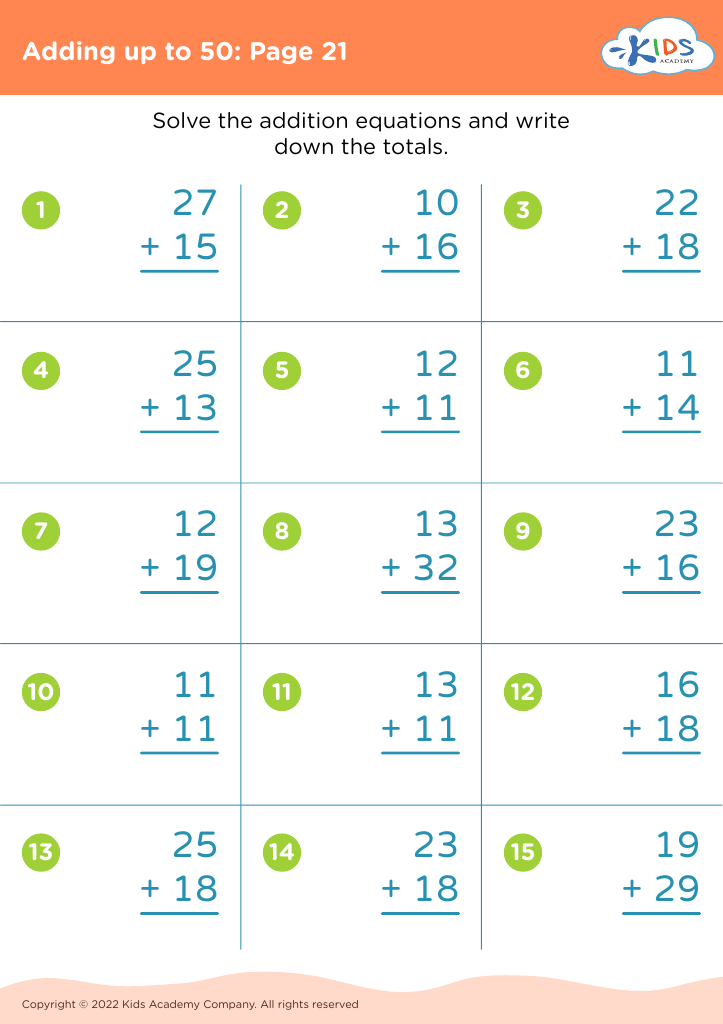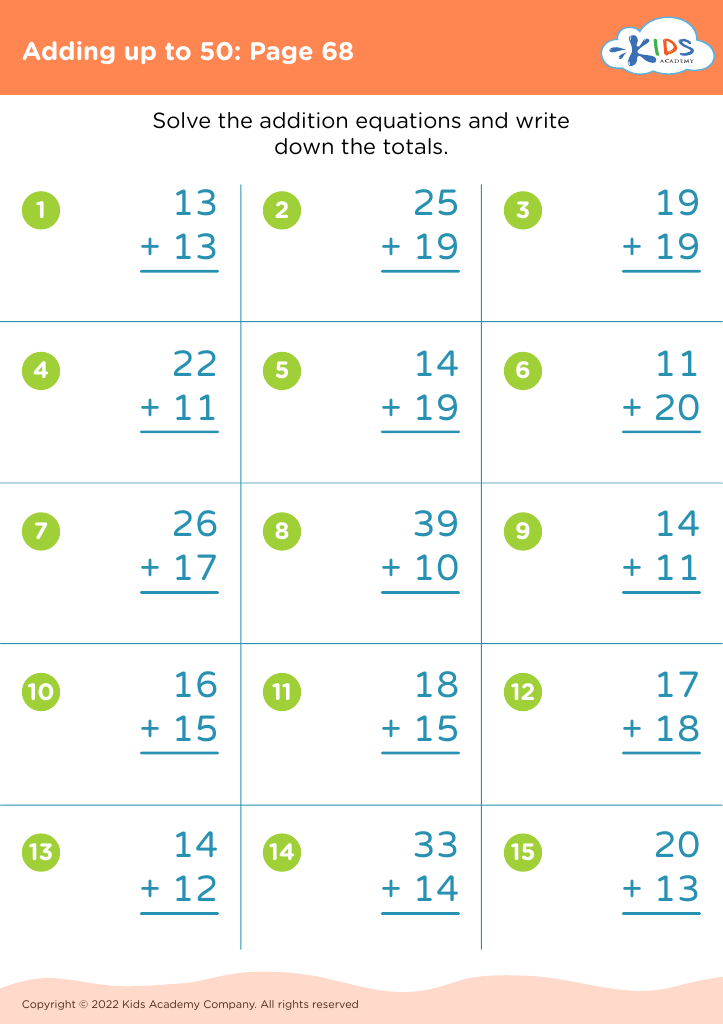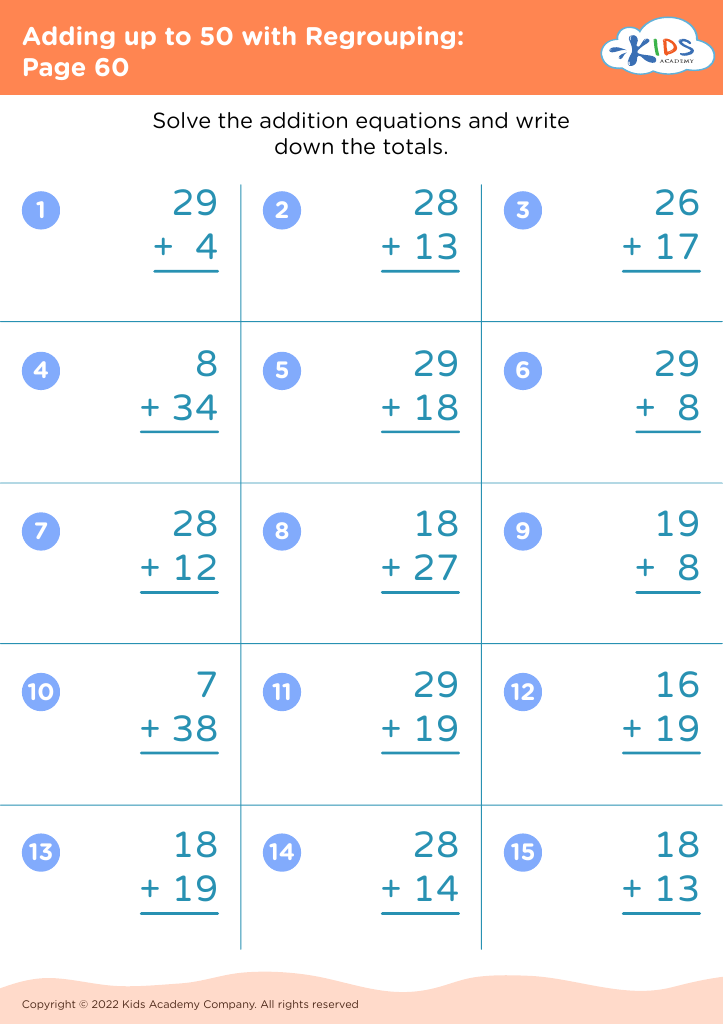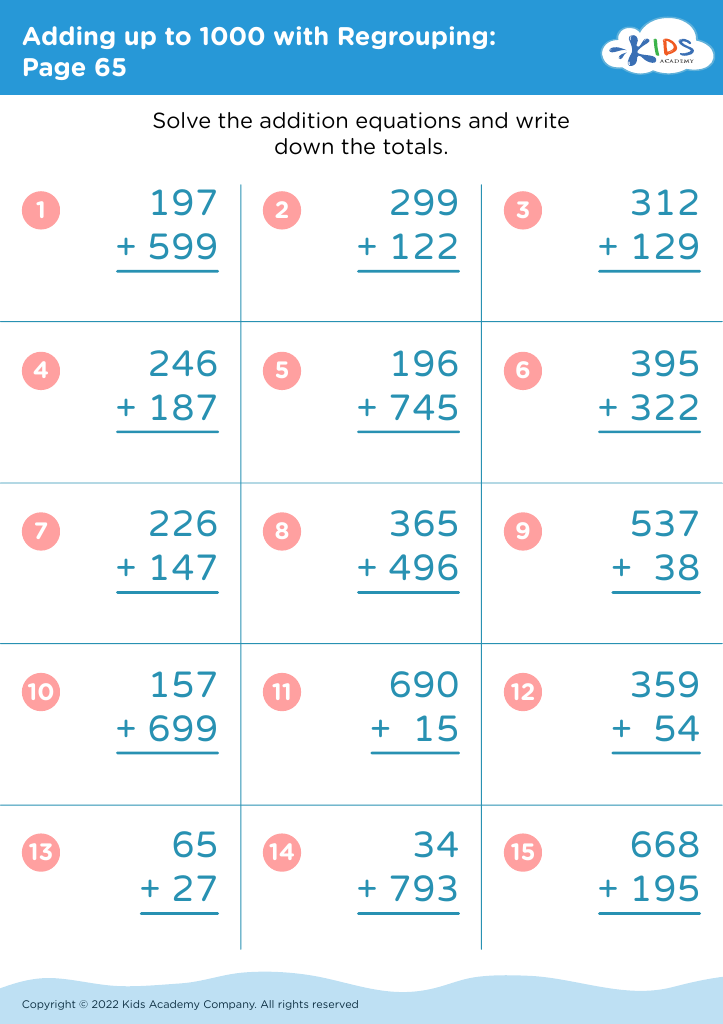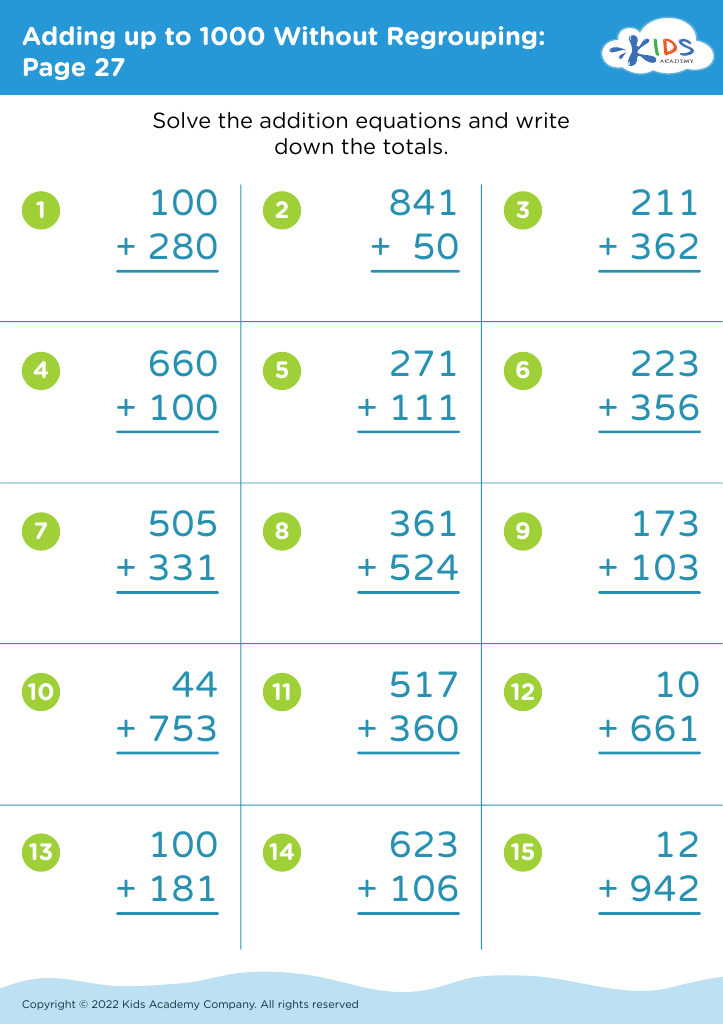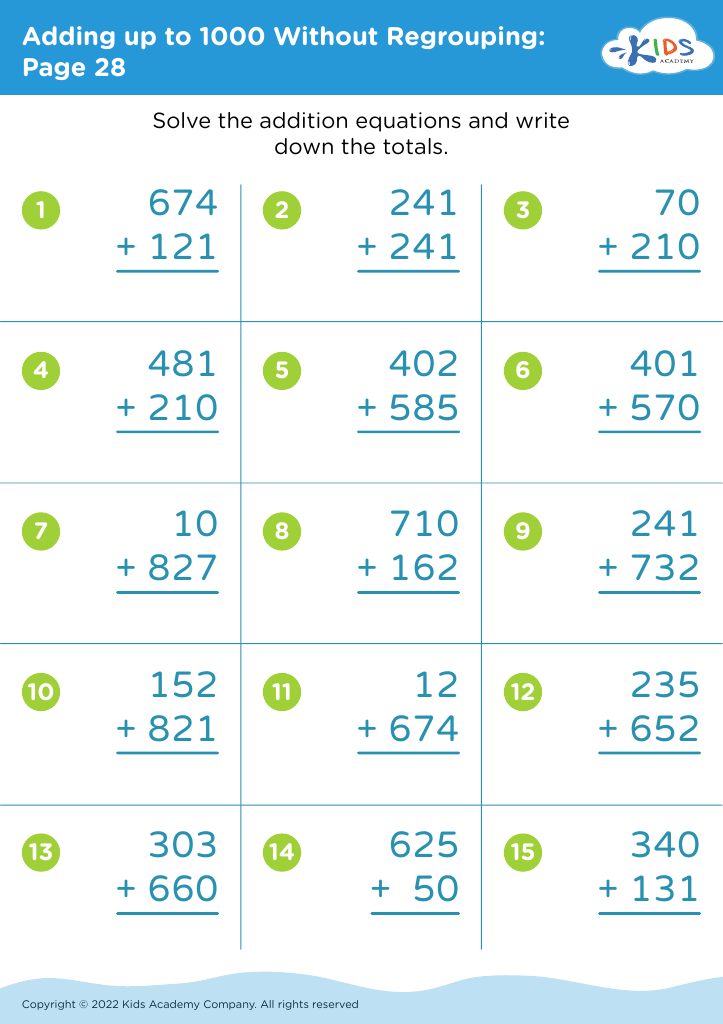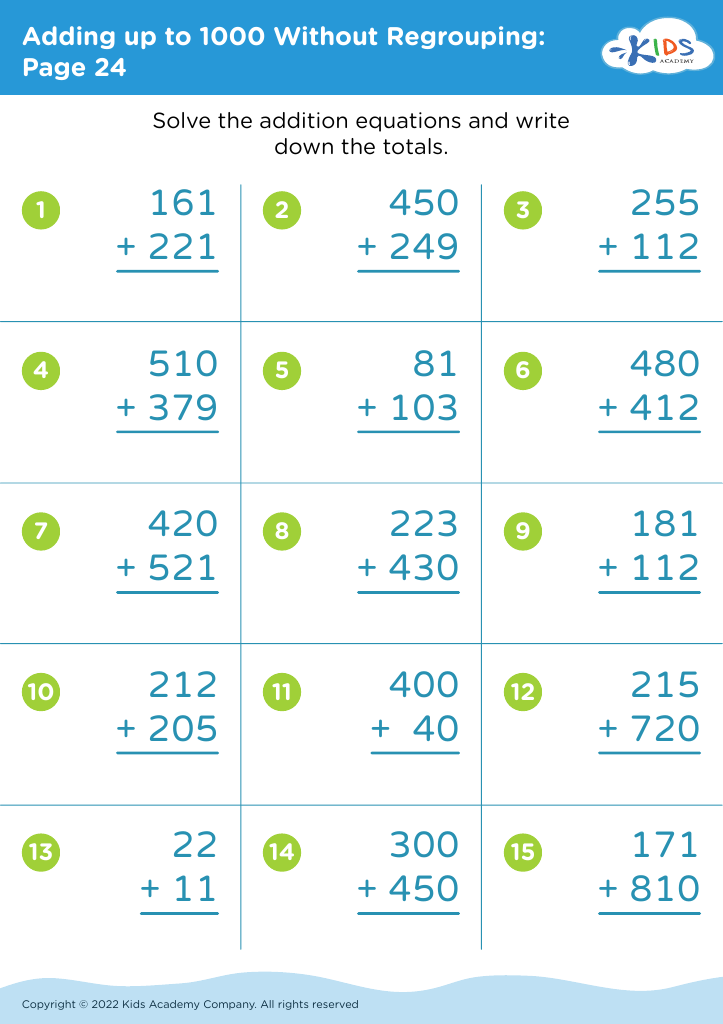Simplifying Fractions Addition Worksheets for 8-Year-Olds
18 filtered results
-
From - To
Our Simplifying Fractions Addition Worksheets are perfect for 8-year-olds mastering basic math. These engaging worksheets provide step-by-step practice in adding fractions and reducing them to their simplest form. Each worksheet is designed to build foundational skills, boost confidence, and make learning fun with colorful, kid-friendly graphics. Through interactive problems and clear instructions, your child will gain a deeper understanding of fractions and their relationships. Whether used for classroom activities or extra practice at home, these worksheets are an excellent resource for helping children enhance their math abilities and foster a love for learning.
Understanding the process of simplifying fractions and performing fraction addition is crucial for 8-year-olds as it serves as a fundamental building block for advanced mathematics. Simplifying fractions helps children grasp essential concepts such as numerators, denominators, and equivalent fractions. Grasping these ideas early on prepares them for more complex problems in later grades, boosting their confidence and competence in math overall.
Parents and teachers should dedicate attention to this skill because it aids in developing logical thinking and problem-solving abilities. Fraction operations require children to engage in critical thinking, breaking down mathematics into manageable steps, which transcends into other academic areas as well. Furthermore, strong foundational math skills are linked to academic success in future schooling and better performance on standardized tests.
Moreover, many practical everyday activities—like cooking, sharing, and budgeting—involve fractions. Ensuring students are comfortable with these concepts enhances their ability to use math in real-world situations, making day-to-day tasks smoother and more intuitive.
Therefore, by committing to teaching and reinforcing the simplification and addition of fractions, parents and teachers not only support educational achievement but also equip children with essential life skills that foster independence and practicality. This effort lays the groundwork for long-term academic and personal success.

